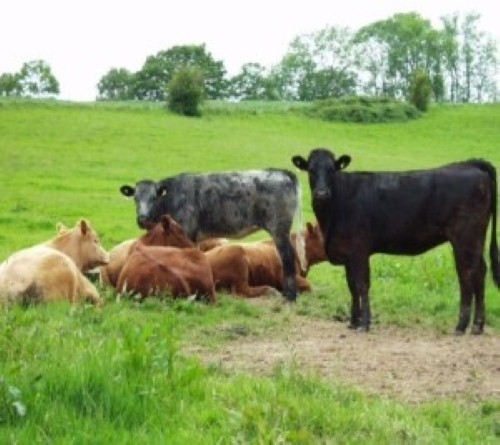As record-breaking heat waves and subsequent droughts have been sweeping the nation and destroying crops, farmers and scientists have decided that it's too late to stop climate change and instead, it's time to start adapting. The Associated Press reported that some farmers have started using genetically engineered plants and animals, designed to survive in more intense heat.
For example, some cattle are being bred with genes from animals hailing from Africa and India, while scientists are creating varieties of corn with longer roots to absorb more water and smaller tassels to save more of the plant's energy for making kernels.
Ron Gill, a rancher who also heads the animal science department at Texas A&M University said that this type of research has been happening for years.
"We're telling people, 'Regardless of what you have to buy to restock, your future breeding programs need to target this new normal and re-establish a different paradigm than what we've had in the past,'" Gill said to the news source.
Gill is also experimenting with a Texas breed of cattle called Hotlanders, developed for its heat tolerance with genetics from the Senepol cows bred in the Virgin Islands.
While crops have severely suffered in the heat, Andrew Wood, a professor of plant physiology and molecular biology at Southern Illinois University, said the damage could have been far worse if not for the science advancements of the last 40 years.
As farmers and experts in agriculture are proving, businesses will be more likely to prosper under duress when properly prepared. Companies in any industry need to ensure that a current business continuity plan exists and each employee is well aware of its details. This way, an enterprise has the best chance of rebounding from numerous types of setbacks.

